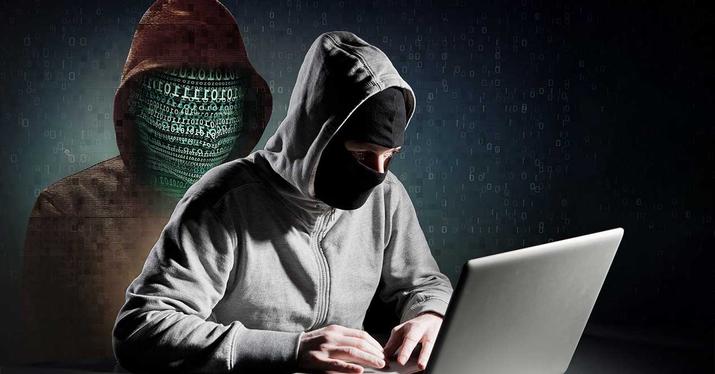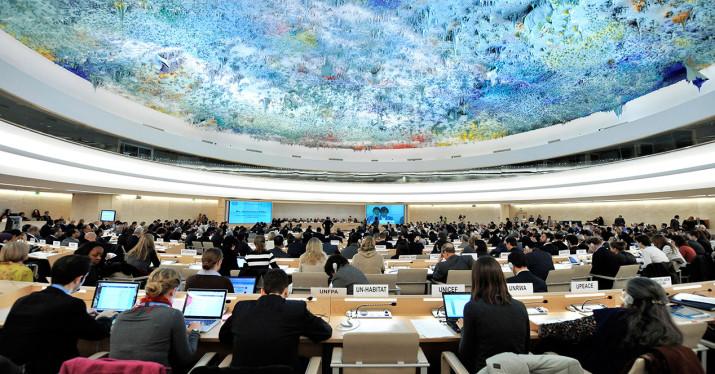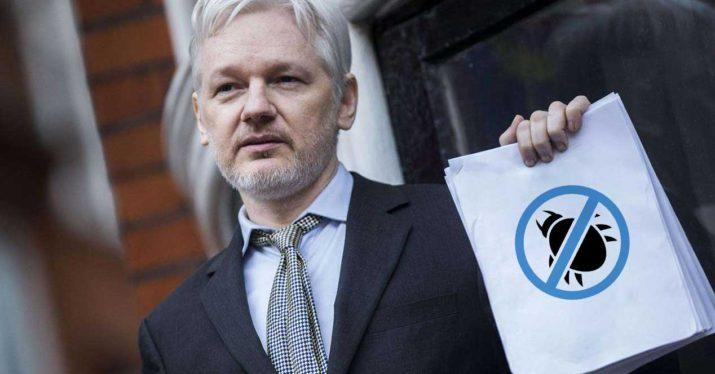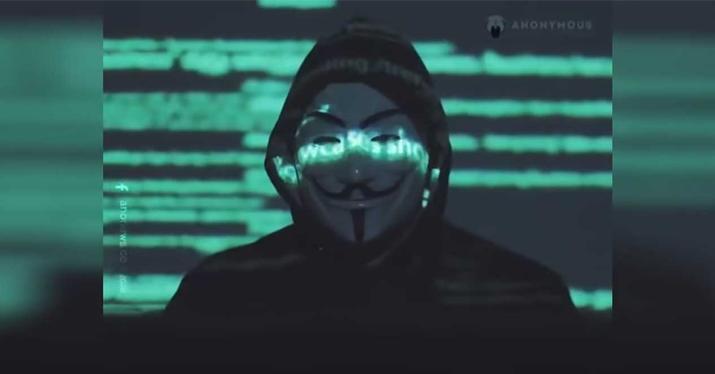With the growth of the Internet at a global level in the last two decades, some cyberactivism groups and platforms have arrived, largely focused on attacking certain websites and databases of official organizations and certain multinationals. Anonymous is the best-known organization of this type worldwide and we can all recognize its aesthetics because they use the mask of Guy Fawkes, an English revolutionary whose portrait became enormously popular throughout the planet thanks to the film written by the Wachowski sisters, V of Vendetta.
In their actions, they usually express, by way of protest against various causes, the lack of freedom of expression or information in some countries, the independence of the network from large corporations and governments, or the right of access to information by users. citizens. Although their field of action began only online and this is where they have achieved the greatest notoriety due to their cyberattacks, they have also taken their actions offline.

Beginnings of the organization
The group, which is made up of a loosely organized international network of hacktivists, traces its roots to the online image-based board 4chan, which launched to the public in October 2003. The site was inspired by 2channel, a massive Internet forum , with supposedly random content, which is especially popular in Japan. 2channel was launched in 1999 and has over 600 boards covering a wide variety of topics including cooking, social news and technology. 2channel visitors typically post anonymously, and most of the website’s content is in Japanese. So, in the same spirit as 2channel, 4chan also allows people to post anonymously. But unlike 2channel, the vast majority of 4chan is in English and anyone who doesn’t type any text in the name field is automatically credited as “Anonymous.”
Most of 4chan’s forums are based on Japanese pop culture, but their most popular forum is /b/, which has created a fascinating culture around it. Many of the memes created by its users that we can see circulating on the Internet, such as LOLcats or Pedobear, originated in /b/, which, as it is an image board, its content is mainly composed of user-generated graphics. They are usually intended to amuse, offend, or do both at the same time and most posts are by unknown authors (“Anonymous”), thus the name “Anonymous” was inspired by the perceived anonymity under the which users posted on 4chan.

Financing and type of structure
The fact that the group is decentralized and there are many anonymous users who can carry out cyberattack actions from anywhere in the world means that Anonymous does not need a hierarchical or organizational structure that entails having financial support to support and finance their actions. This has been and is one of the great advantages of the group and for which its freedom of action has always prevailed over any other interest.
Despite this, the group has financed its own website through crowdfunding on Indiegogo. After asking potential donors for an amount of around 2,000 dollars, the movement has managed to raise no less than 54,000 in a short space of time to finance its own website.

Ideas of the movement and targets it attacks
Many have been the journalists and authors who have dared to describe the ideology of this organization and in different ways. One of the most used definitions is that of the author Harry Halpin, who says that it is “a community movement of socialist organization, based on the Internet and that tries to give answers to questions that citizens do not find them.” From the group, prominent members such as the hacktivist and journalist for The Wall Street Journal, Parmy Olson, emphasize the lack of structure of the group and, therefore, that no one is in charge of it.
The targets in these years of existence have always been organizations and even governments of a non-transparent nature and even with authoritarian drifts. From the Church of Scientology, through the terrorist group ISIS to dictatorial governments such as Saudi Arabia, they are common targets of the group. But also the website of the United Nations or the former president of the United States, Donald Trump, have been involved in attacks by this movement.

Differences with WikiLeaks and significant attacks
Every year since 2008, Anonymous has been involved in cyberattacks of all kinds that, to a greater or lesser extent, depending on their objective, manage to have a greater or lesser impact in the media. But not all the leaks about governments and large companies that the media send us come from the aforementioned group.
The WikiLeaks platform is responsible from time to time for filtering information and documents that put different organizations in check, but its mission is far from that of this organization of unknown citizens. If Anonymous’s main mission is to bring down websites and unlock databases to denounce it and make the majority of the population aware of it, WikiLeaks’ mission is more journalistic. The platform founded by Julian Assange is based more on filtering news that has generally been hidden from the media and is secret from multinationals or governments.

Scientology, first target in 2008
The hacker collective’s first cause to make headlines was an action in 2008 called Project Chanology. In January 2008, a Church of Scientology video was leaked on YouTube featuring a propaganda video featuring Tom Cruise laughing hysterically. As the video was compromised for the cult, they tried to get YouTube to remove the video due to “copyright infringement”. In response, a video was posted on YouTube credited as anonymous entitled “Message to Scientology.”
A press release was written explaining the intentions behind Project Chanology outlining why it is a dangerous organization and how the cult’s attempt to remove Cruise’s video from YouTube violated free speech. Scientology has a reputation for financially exploiting its members, engaging in blackmail threats against people trying to leave the cult, and other abuses. The call to action, also credited to Anonymous, was posted on YouTube calling for protests outside of this church’s centers around the world and a DDoS attack was also launched on the Scientology website soon after. Between marches outside churches and the videos the group posted, they managed to establish their power in this first project.
australian government
In February 2010, the Australian government was in the process of passing legislation that would make some online content illegal. In response, the movement became involved in Operation Titstorm using DDoS attacks to take down various government websites.
Months later, Operation Didgeridie began in September of the same year, in which the Australian government had plans to censor the Internet at the ISP level. An anonymous user started an attack on Prime Minister Kevin Rudd’s website and stopped it for about an hour.

Iran
In June 2010, President Mahmoud Ahmadinejad was elected as President of Iran, sparking protests across the country. In response, Anonymous Iran, an online project between this organization and The Pirate Bay, a popular but persecuted torrent search engine, was formed.
There it offered Iranians a safe forum for citizens to anonymously express their protests amid the Persian government’s crackdown on online news about the unrest. Shortly after Project Skynet was launched by that movement the same month to fight internet censorship around the world.
Africa and Arab Spring
The movement reported in 2010 that Zimbabwean dictator Robert Mugabe’s wife, Grace Mugabe, profited from illegal diamond mining. The information was revealed through a WikiLeaks leak. Therefore, they took down Zimbabwean websites through DDoS attacks, in response to government corruption.
Continuing on the African continent, as of January 2011, the websites of the Tunisian Stock Exchange and the Ministry of Industry of the same country were brought down by more anonymous DDoS attacks. It was a reaction to censorship by the Tunisian government, which had tried to restrict Internet access for its citizens and arrested many bloggers and online activists who had criticized the government.
Also in January 2011, the Egyptian government became a target. The efforts began with the intention of removing Egyptian President Hosni Mubarak from office. After the government blocked citizens’ access to Twitter, this organization took down the Egyptian government’s websites.

Sony
Sony became another target of Anonymous as user GeoHot was banned by PlayStation Network for jailbreaking and modifying his PS3 console. GeoHot attracted Sony’s attention by posting information on modding PS3 on the Internet and PlayStation Network and several Sony websites were taken down through organized attacks.
This was the way in which the group of anonymous citizens came out in defense of GeoHot and its users and after the attack several weeks passed before PlayStation Network was able to function normally again.












